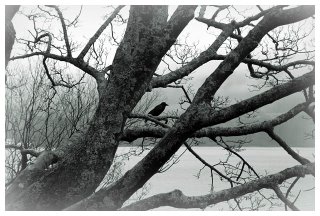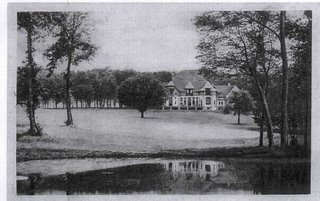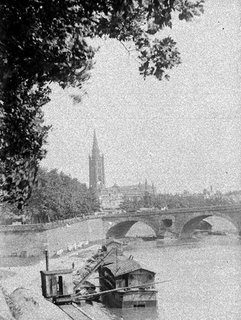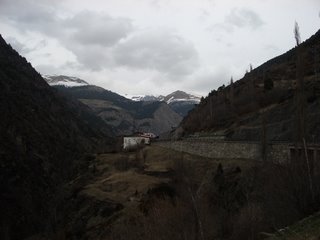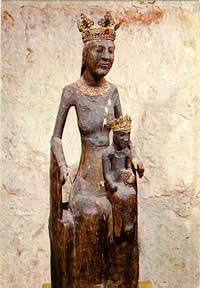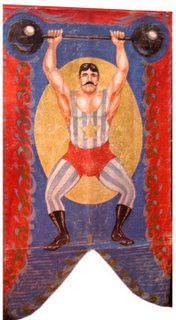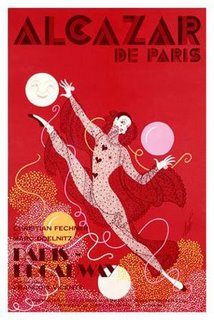Pulvis Et Umbra Sumus
If Riesling was a proverbial pain in the neck, his incomprehensibility has achieved new heights of manic fervor after our evening in that Mephistophelian harborage. Ives will not talk to me (or anyone for that matter) but seems to have retained at least some semblance of dignity by being the only member of our robust covey not burdened by inexplicably soiled apparel. Rameau keeps remarking that the sun seems an odd shade of yellow today despite repeated warnings that he shall damage his eyes if he insists on staring at the skyward harbinger of day. D'Alsace remains more concerned about the loss of his finger than our spectral visitation, asseverating that there must exist a doctor in the world who can not only return said digit to its rightful locale but do so with such skill as to never warrant any indication that harm was exacted upon it.
As for myself, I remain impervious in demeanor, while my cavernous innards, where my emotions are nestled in a bower of marrow and gristle, are a tempest of perturbation.
The noise in the barn echoed from the rafters; a pitiful sigh, so wrought with longing, anguish, and sorrow, as to be unmistakeably bound to some staunch advocate of woe. The Infantry remained in harmonious dormancy, albeit still absent of our dear Rameau, scouring our surroundings for sustenance. Though I remained awake I decided to opt for the safer path of conformity, and give no heed to the bowel-movement-inducing disembodied voice from the creeks and curls of the barn.
For a moment.
For the briefest of moments, until a book fell into my lap. A musty old book, bound in cordwain. Etched in gold inlay, upon its seasoned shell, the words "Ars Moriendi". Retaining my sense that since no one else seemed concerned by these vaguely disturbing occurrences, and instead resorting to sleep, I felt I should continue to regard this disquieting omen as strangely charming, even affording myself a brief chuckle and the almost fustian exclamation of "Splendid!".
Rameau, at this moment, entered the barn bearing a veritable cornucopia of silverbirch bark and owl pellets. In the grim light of the barn, realizing immediately that his comrades were nestled in the warm arms of sleep, he edged his way closer to the storm lantern that stood beside me.
"Ars Moriendi, Sir? 'The Art of Dying', rather macabre reading material if you don't mind my saying", he remarked with all the infuriating aplomb of a recalcitrant schoolboy.
"Well I do mind, you condescending dreg!" I replied hastily, as to avoid instilling further disorder in my charge by explaining the phantasmal nature of the book's appearance. "I read this book nightly." And, without thought, I began to turn the pages.
"There doesn't seem to be much to read, Sir. Just photos of people sleeping" remarked Rameau.
"Not asleep, Monsieur Rameau. Departed" I replied, "Dead".
"Dead sir?" exclaimed Rameau.
"As a door nail, Rameau" I said with feigned indifference, unfortunately betrayed by a rather indelicate shrillness in my voice.
"Beautiful photographs, don't you think?" I marvelled, landing upon an oddly entrancing image of a young girl. Scrawled in ancient ink in the ornate italics of yesteryear, the name Margaux underlined the photograph, propounding the mademoiselle's calling from beyond her sepulchral boudoir.
"Do you really think so?" urged a fledging voice in my ear; whispered with all the seductive allure of a premature Parisian strumpet.
Risking myself a brief glance at Rameau, his ashen visage, belying any remnant of his former courage, I knew our recent companion was necessarily of an impeccably unpleasant variety. Turning ever so softly to my right to take in our fey and artful visitor, closing my eyes in perhaps preemptive terror . . .
And Oh Horrors . . .
Upon opening my eyes what lay before me, dear brothers, was not of this earth. Her likeness was the photograph, her serenity remained, and yet, with a missing ocular organ, an absent extremity commonly referred to as a nose, and hair worn with all the decay and putrescence of a long abandoned catacomb, her beauty was decidedly vanished. Margaux the deceased.
Awestruck and paralysed with fear, I lost all sense of reason, and foolishly answered her question. "Yes, I do think so," I timidly uttered. She smiled (complete with a lack of discernable lips, and half a jaw) and then, she moved in for the kiss.
"The kiss of death, sir!" screamed Rameau as his leather boot whistled past my cheeks into the purulence of the girl's once impeccable face. You may rail against the thought of an individual of our stature and maturity attacking the meek frame of an adolescent, yet given th
In response to Rameau's vociferation, the Infantry was at arms. The sighs in the rafters grew to unbearable heights of cacophony as a horde of hideous ghouls, a cadaverous mob, a mephitic mass descended upon our scrimpy ranks. Having browsed the catalogue of ghostly daguerrotypes, I recognized various characters that now afflicted our body with whips and scorns, claws and irons, pangs and poisons.
"It's the fucking nuns," screamed Ives, but before I could correct his obvious ignorance, and explain to him that we were dealing with a far more nefarious enemy, a blow struck me around the crown, and I sank into unconscious delirium . . . witnessing, as my cheek hit the spit, blood, and manure ridden barn floor, the Black Madonna being torn from the grubby paws of Riesling . . . the look of abject terror on his face, as Margaux's lips lingered closer to his, preparing themselves for embrace . . .
When I awoke, the barn was nowhere to be seen. I was attired merely in those shabby clothes the All Mighty granted me on the sordid day of my birth. The Infantry was nowhere to be seen.
Resting on my chest, a small inch of papyrus, scrawled upon it in the delicate calligraphy seen only before in the deathly tome:
The Infantry may be infamous my dear Monsieur Jareth;
Your tactics are renowned throughout France.
But there are no better thieves than 'The Grave Robbers'.
Remember us Monsieur.
With love (and death)
Margaux
